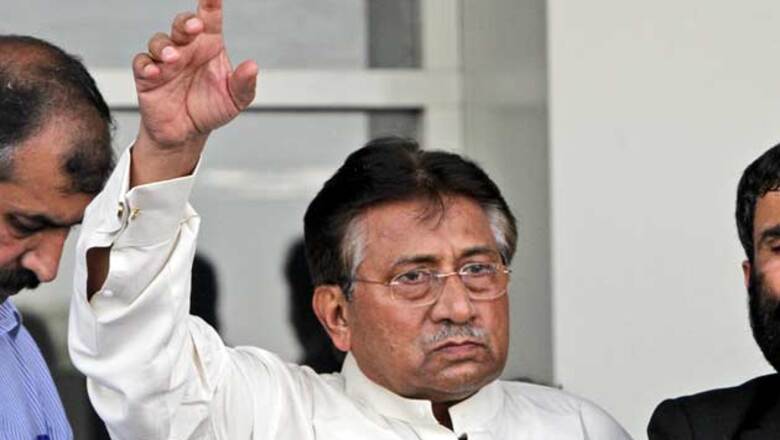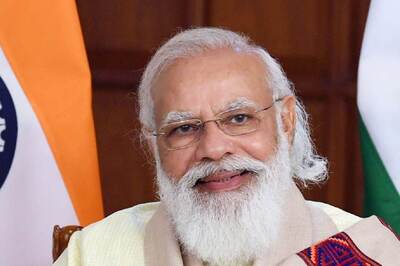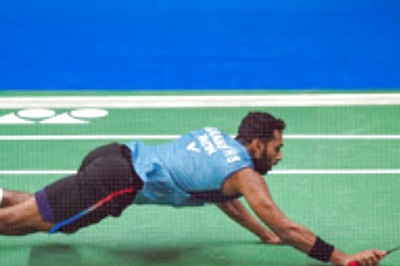
views
Islamabad: Pakistan former President Pervez Musharraf was slapped with terror charges on Friday by a court and placed under house arrest at his famrhouse. The court directed the police to produce Musharraf before anti-terror court in two days.
Musharraf was earlier in the day arrested in a case relating to the imposition of emergency rule in 2007 and was presented before a magistrate, becoming the first former army chief to face such action.
Speaking to GEO News, Musharraf said that he will respect the law. "I have come to Pakistan on my own accord. Ready to face the consequences," said Musharraf. Meanwhile, supporting the former Pakistan president's statement, his spokesperson Raza Bokhari said, "Musharraf has chosen to avoid a confrontation. His actions are voluntary. His lawyers will carve out the next course of action. Allegations in the lower court with respect to the judge detention case is a bailable offense. Hope that he will receive a bail."
Police officials arrested the 69-year-old former military strongman and took him to the court of judicial magistrate Muhammad Abbas Shah. The police officials informed the magistrate that they did not need physical custody of Musharraf and he could be placed in judicial custody.
However, lawyers for several persons who have filed petitions against Musharraf for imposing emergency in 2007 and detaining over 60 members of the superior judiciary contended that he should kept in police custody. They also questioned why Musharraf had not been handcuffed by police after his arrest.
Musharraf's lawyer Qamar Afzal argued that his client should be kept in judicial custody as there were serious threats to his life. The magistrate reserved his verdict in the matter and Musharraf left the court complex after waiting for some time for a decision.
Footage on television showed Musharraf being led into the magistrate's small office by dozens of policemen and paramilitary personnel. Musharraf looked shaken and was wearing a waistcoat over a shalwar-kameez. Sources said that authorities had asked for Musharraf to be placed in judicial custody as this would allow the administration of Islamabad to declare his farmhouse at Chak Shahzad a 'sub-jail' and detain him there.
Authorities have been focussing on this measure as officials are not keen on holding Musharraf at a jail due to threats to his life. The arrest came a day after the Islamabad High Court ordered the arrest of Musharraf for not cooperating with police officials investigating a case registered against him for detaining dozens of judges, including Supreme Court Chief Justice Iftikhar Chaudhry, during the 2007 emergency.
However, immediately after Justice Shaukat Aziz Siddiqui revoked his pre-arrest bail and ordered police to detain him, Musharraf and his security detail fled from the Islamabad High Court complex and drove to his farmhouse.
Musharraf's lawyers were unable to file an appeal in the Supreme Court on Thursday as they were unable to complete certain formalities before the court closed for the day. Analysts said Musharraf's arrest could put the judiciary in conflict with the powerful military, which would not like to see a former chief being humiliated or insulted in public. The analysts further said that if Musharraf was put on trial, members of the current military leadership, including army chief Gen Ashfaq Parvez Kayani, could be dragged into the matter as they were part of Musharraf s inner circle when he imposed emergency rule in 2007.
Musharraf has had to grapple with numerous legal problems since he returned to the country last month after nearly four years in self-exile. Earlier this week, Musharraf was disqualified from contesting next month's general election, effectively ending his ambitions for a political comeback. Authorities have also barred him from travelling out of Pakistan.
With Additional Inputs from PTI



















Comments
0 comment